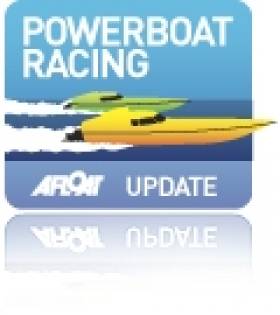Displaying items by tag: Buccaneer
Irish Powerboat Racers Take to World Stage
Irish powerboat racers have taken to the world stage in the southern hemisphere for the first time. (SCROLL DOWN FOR PHOTOS)
Keith Plummer, Lee Casey and Colin Gaffney from Dublin, all members of the Buccaneer Powerboat Club and Sean Dillon and Gary Hogg from Clare, members of the Irish Offshore Powerboat Racing Club took part in the UIM P750 World Championships South Africa last week.
On the ground the reports were that even though the Irish competitors had their mechanical setbacks they kept pushing hard. When it came to the rough stuff in the surf they really shined, gaining a lot of respect from their fellow competitors.
Sean Dillon & Gary Hogg had two wins and a second in the surf discipline and finished fourth overall in the championships. Mechanical setbacks denied Colin Gaffney and co-driver Bongani Ndesi, a world Championship medal to accompany his European Championship medal won at the UIM P750 European Championship at Killaloe in October.
All five have reported that it was a great experience and that taking part showed them what a wonderful sport this is and being part of the UIM family. They all said how proud they were to be Irish and the first competitors with an ISA Powerboat Racing Licence to Race in South Africa.
The P750 class has gone from strength to strength in Ireland and 2010 saw a well-supported national Championship, the P750 Europeans being held in Ireland and Irish Competitors competing in the World Championships.
Pictures below by Paul Bedford/www.actionimages.co.zaColin Gaffney Boat No 21, Keith Plummer and Lee Casey From Dublin Boat No 22, Sean Dillon and Gary Hogg from Clare Boat No 49. Sean and Gary were the top Irish team being placed fourth.






























































